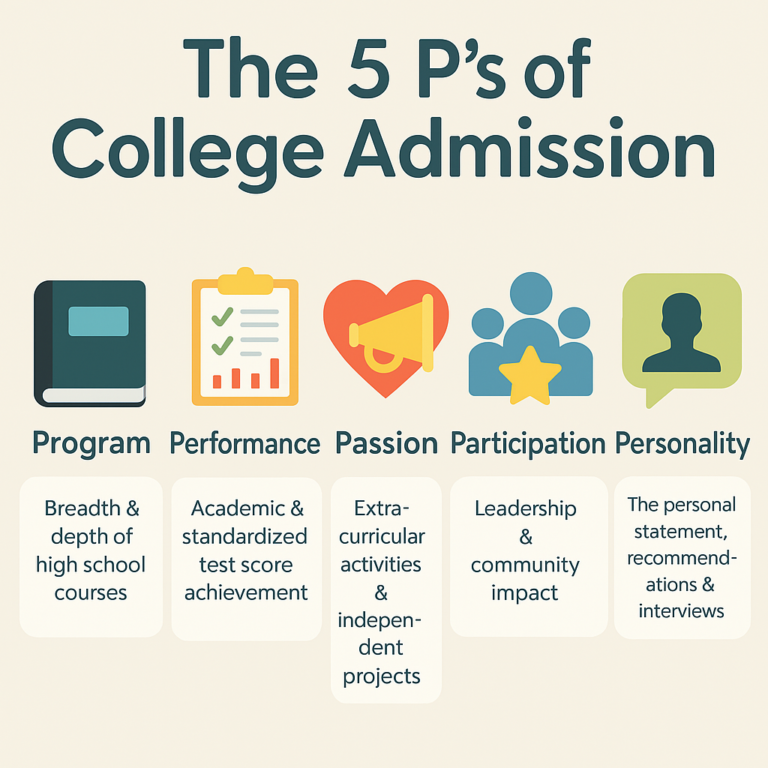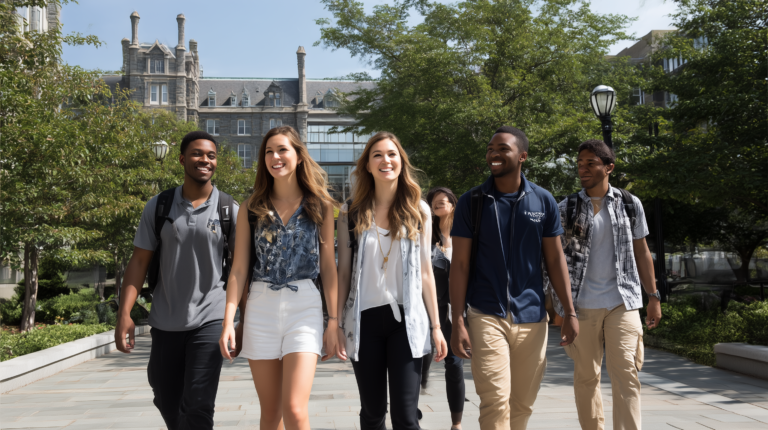📘 The Ultimate Guide to the 2025–2026 Common Application
Essential Information Every Parent and Student Must Know Together
Dear Parents and Students,
The U.S. college admissions process is becoming more complex each year. Among the many changes, the Common Application—used by hundreds of colleges—is considered the starting point of college applications today.
In this post, we’ll walk you through the latest updates to the Common App for the 2025–2026 cycle (effective August 1, 2025) and share important tips and success strategies that both students and parents need to understand. In the long journey of college admissions, accurate information and the right preparation can make a big difference.
🔔 What is the Common App?
The Common Application (commonly referred to as the Common App) is an online platform that allows students to apply to over 1,000 colleges and universities in the U.S. and abroad.
Students can efficiently submit academic records, activities, essays, recommendation letters, standardized test scores, and more—all through one system.
🆕 Summary of Key Updates to the 2025–2026 Common App
1. Direct Admissions
Based solely on the GPA and activity data entered into the Common App, some colleges may offer admission to students who haven’t officially applied.
This feature is designed to expand access for low-income and first-generation students.
However, students must still submit a formal application via the Common App to confirm admission.
2. Expanded Scholarship Match
The platform now helps match students with scholarships based on the information they enter.
Note: Matching does not mean automatic award. Students must still apply through the scholarship provider’s website.
Students should carefully review the “Scholarships” section and follow the provided links.
3. Standardized Test Reporting (no major changes)
Students can self-report SAT, ACT, AP, and IB scores.
Testing policies (required, optional, or blind) vary by college, so be sure to check each school’s requirements.
👨👩👧 Section-by-Section Tips for Parents and Students
1. Academic Section
- Confirm GPA and class rank with your school counselor before entering them.
- Include any previous high school or dual enrollment college courses.
- Indicate the grading scale used at your school (e.g., 4.0, 100-point, or 5.0 weighted).
2. Testing Section
- You may self-report your SAT/ACT scores and list future test dates and registration numbers.
- Some colleges are test-optional or test-free; check each college’s policy in advance.
- AP scores: You can report only your passing scores, but if you’d like to highlight your effort or academic challenge, lower scores may also be included.
3. Honors Section
- List up to five academic honors received after 9th grade.
- Organize them by level of significance (national → state → regional → school) and date.
- Avoid abbreviations and internal terms. For example, write “Georgia High School Association” instead of “GHSA.”
4. Activities Section
- Include extracurriculars such as clubs, volunteering, research, internships, jobs, and caregiving.
- Clearly describe your role, title, and impact (e.g., “President of Robotics Club, led team to state finals”).
- Prioritize activities related to your intended major to show focus and consistency.
- Don’t just list activities—use them to demonstrate your personal growth.
5. Essay
- Choose a Common App prompt that allows you to share your story, values, or meaningful experiences.
- Avoid vague or clichéd topics. Be specific and reflective.
- Begin drafting your essay in the summer and revise it with feedback multiple times.
- Ask others to review your essay for objectivity and clarity.
6. Family Section
- Include your parents’ job titles, employment status, education level, and colleges attended.
- This helps colleges understand your family background.
- If your parents are divorced, separated, or deceased, provide accurate details. List the parent or guardian you currently live with.
🔧 Technical Tips to Avoid Mistakes (For Students and Parents)
- Submit your application at least 3–5 days before the deadline.
→ The site often slows down or crashes on deadline day due to heavy traffic. - There is no auto-save feature. Be sure to click “Save” frequently.
- Request recommendation letters during the summer to give teachers enough time.
- Always preview your application as a PDF before submission to check formatting and layout.
🎯 Frequently Asked Questions (FAQ)
Q: How many colleges can I apply to through the Common App?
A: Up to 20 colleges. Note that some schools require supplemental essays.
Q: Can I use the same essay for multiple colleges?
A: Yes, the main personal essay can be reused. However, make sure to tailor any supplemental essays to fit each school.
Q: Do I have to submit test scores?
A: It depends on the college. Always check each school’s test policy.
Q: How many letters of recommendation do I need?
A: Typically, 1–2 teachers and 1 counselor. Check each college’s specific requirements.
✨ Final Thoughts: College Admissions Is a Team Effort
The Common App is not just a form—it’s a vital window through which colleges view a student’s academic ability, character, interests, and life journey.
Parents: Please help your child stay on schedule, and offer encouragement and support.
Students: Focus on expressing your story sincerely and clearly.
College admissions is a marathon, not a sprint. The Common App is your first major hurdle.
But if you understand it well and prepare thoroughly, there’s no reason to fear it.
Thank you for reading.
Andy Lee
Elite Prep Suwanee powered by Elite Open School
📍 1291 Old Peachtree Rd, NW #127, Suwanee, GA 30024
🌐 eliteprep.com/suwanee
📧 andy.lee@eliteprep.com
📞 Tel & Text: 470.253.1004
🎥 www.youtube.com/@ElitePrepSuwanee
1:1 Educational Consulting (Online/In-Person): Consultation Request Form







